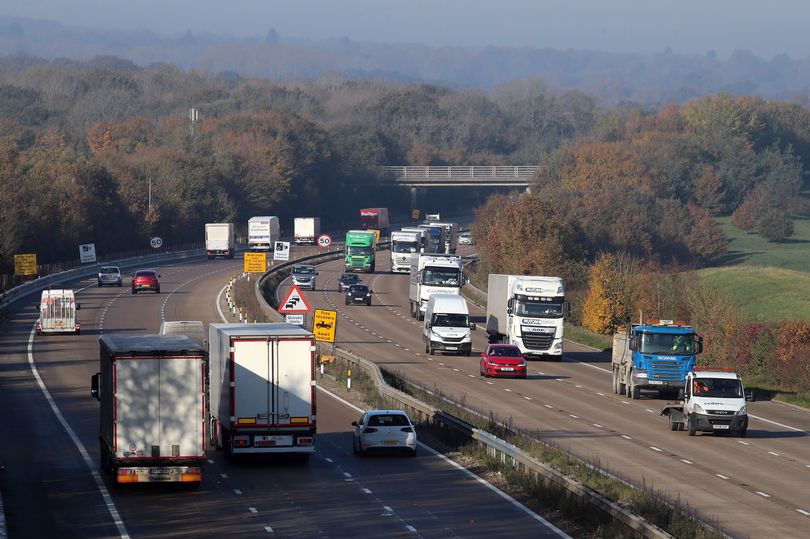'Don't start your engine' at 'peak' times this week and use '15-minute rule'

As temperatures across the UK head into the 30s again this week, most drivers are thinking about keeping cool inside their cars. But, according to one automotive expert, there's a hidden danger that could leave you stranded with a hefty repair bill – and it's all about timing.
With the fourth heatwave of the summer bringing amber health warnings into effect, drivers need to be aware that starting their car during peak afternoon heat - typically seen after the hottest hours of the day, which in the UK is generally 11am to 3pm - could seriously damage their engine, the expert said. The combination of scorching temperatures and a day's worth of heat building up under the bonnet creates the perfect conditions for mechanical disaster.
Kazimieras Urbonas, a car expert and Supplier Excellence Manager at Ovoko, one of Europe's largest online marketplaces for used car parts, has seen firsthand the damage that extreme heat can cause to vehicles.
- Magaluf is 'dead' as British woman takes heartbreaking footage from party strip
- Lloyds to become first UK bank to introduce £300 rule from end of August
“Most drivers don't realise that their car's engine bay can reach temperatures far higher than the outside air temperature during a heatwave,” explains Urbonas. “When you try to start a superheated engine, you're asking it to work even harder when it's already under incredible stress.”
Why peak heat hours are your engine's worst enemy
Urbonas explains that the real problem starts long before you turn the key. “Throughout a hot day, heat builds up steadily under the bonnet, turning your engine bay into an oven. By late afternoon, when temperatures peak, the metal components are already superheated and struggling to cope.”
During a typical summer day, engine bay temperatures can climb 20-30 degrees higher than the outside air. When you start a car that's been sitting in 34C heat for hours, you're essentially asking an already overheated system to generate even more heat through combustion.
“The cooling system becomes overwhelmed,” says Urbonas. “Your radiator and cooling fans are working overtime just to maintain normal temperatures, but they're fighting a losing battle against the ambient heat.”
The hidden damage you can't see
Starting a superheated engine not only strains the cooling system, but can also cause expensive internal damage that won't show up until it's too late. Metal components expand differently under extreme heat, and sudden temperature changes from starting the engine can cause warping.
“We see a lot of damaged parts coming through our marketplace during heatwave periods,” notes Urbonas. “Cylinder heads, gaskets, and cooling system components that have failed due to heat stress. These aren't cheap fixes either - we're talking hundreds or even thousands of pounds in repairs.”
The most vulnerable parts include rubber seals and gaskets, which can perish under extreme temperatures, leading to coolant leaks and engine overheating.
Four warning signs your engine is heat-stressed
Urbonas identifies these key warning signs that your engine is struggling with the heat:
Temperature gauge climbing higher than normal
Even if it's not in the red zone, a higher-than-usual reading during startup is a clear warning sign.
Coolant smell or steam
“If you smell sweet coolant or see steam when you open the bonnet, your cooling system is already under severe stress,” warns Urbonas.
Unusual engine noises
Pinging, knocking, or unusual rattling sounds can indicate that engine components are expanding beyond their normal tolerances.
Sluggish performance
If your car feels less responsive or struggles to accelerate normally, the heat may be affecting engine performance.
The 15-minute rule that could save you thousands
The solution is surprisingly simple, according to Urbonas: “Wait 15-20 minutes after peak heat hours before starting your car, or take steps to cool it down first. It's such a small change that can prevent massive headaches later.”
“If you must drive during peak heat, start the car and let it idle for a minute or two before driving off,” advises Urbonas. “Give the cooling system a chance to circulate before you put the engine under load.”
Urbonas said: “Prevention is always better than repair when it comes to protecting your engine during extreme heat. Simple steps like parking in shade whenever possible, using reflective windscreen covers, and checking your coolant levels before heatwaves can save you significant money and stress.
“Regular maintenance becomes even more important during hot weather. Make sure your cooling system is in top condition: check for leaks, ensure your radiator is clean, and consider having your coolant changed if it's been a while. A well-maintained cooling system is your first line of defence against heat damage.
“If you do notice any warning signs, don't ignore them. The cost of a simple coolant top-up or radiator flush is nothing compared to replacing a warped cylinder head or blown gasket. At Ovoko, we see too many expensive failures that could have been prevented with basic precautions and early intervention.”